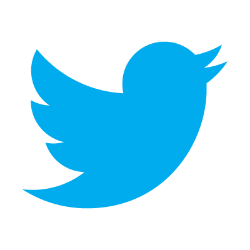Since the Covid-19 pandemic is a global threat to health that few can fully escape, it has given a unique opportunity to study international reactions to a common problem. Such reactions can be partly obtained from public posts to Twitter, allowing investigations of changes in interest over time. This study analysed English-language Covid-19 tweets mentioning cures, treatments, or vaccines from 1 January 2020 to 8 April 2021, seeking trends and international differences. The results have methodological limitations but show a tendency for countries with a lower human development index score to tweet more about cures, although they were a minor topic for all countries. Vaccines were discussed about as much as treatments until July 2020, when they generated more interest because of developments in Russia. The November 2020 Pfizer-BioNTech preliminary Phase 3 trials results generated an immediate and sustained sharp increase, however, followed by a continuing roughly linear increase in interest for vaccines until at least April 2021. Against this background, national deviations from the average were triggered by country-specific news about cures, treatments or vaccines. Nevertheless, interest in vaccines in all countries increased in parallel to some extent, despite substantial international differences in national regulatory approval and availability. The results also highlight that unsubstantiated claims about alternative medicine remedies gained traction in several countries, apparently posing a threat to public health.
翻译:由于Covid-19大流行对健康构成全球威胁,很少有人可以完全摆脱这种威胁,因此它提供了一个独特的机会来研究国际上对一个共同问题的反应,这种反应可以部分地从公共网站到Twitter获得,从而可以对随时间发生的变化进行调查。这项研究分析了英语Covid-19推特,提到2020年1月1日至2021年4月8日的治疗、治疗或疫苗,寻求趋势和国际差异。结果在方法上存在局限性,但表明人类发展指数指数较低的国家倾向于更多地推介治疗方法,尽管对所有国家都而言,这是个小话题。在2020年7月之前,疫苗与治疗一样受到讨论,由于俄罗斯的发展,疫苗引起了更多的兴趣。2020年11月的Pfizer-BioNTech初步试验导致立即和持续的急剧增长,但随后直到2021年4月8日,对疫苗的兴趣继续大约直线增长。在2021年4月之前,国家与平均数的偏差是由关于治疗、治疗或疫苗的国别新闻新闻所引发的。然而,各国对疫苗的兴趣在某种程度上也增加了,尽管在2020年7月,由于俄罗斯的发展发展而引起更多的兴趣,尽管出现了重大的国际管制和供应威胁。



